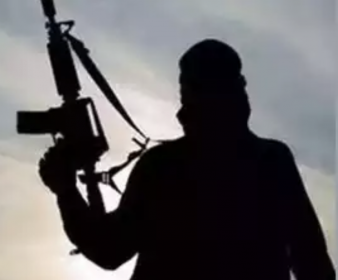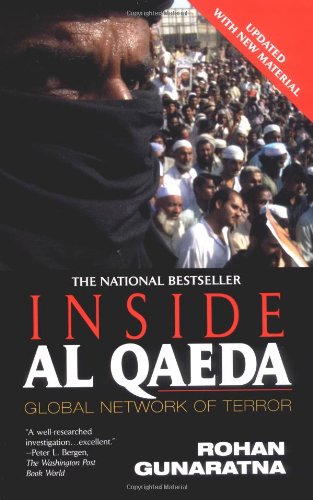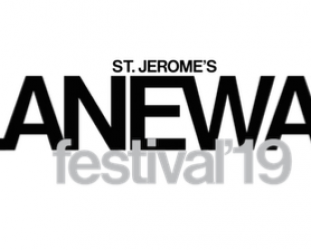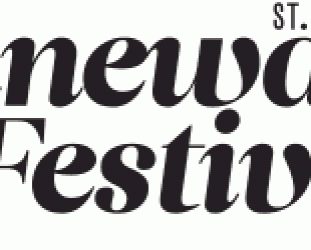Graham Reid | | 20 min read

He is the research fellow at the Centre for the Study of Terrorism and Political Violence, St Andrew's University, Scotland.
In his book Inside al Qaeda he says there were to be more strikes planned for September 11: Terrorists were at Heathrow airport ready to board planes for a suicide attack on Britain's Houses of Parliament but in the wake of the US attacks earlier all flights were grounded. He also says al Qaeda has tried to obtain nuclear material and that since security has been heightened after September 11 terrorists will now attack "soft targets" such as civil populations (as in the case of Bali on October 12, 2002) and that their attention would now shift from the Middle East to the volatile region of south east Asia.
He spoke by phone from an undisclosed location in Singapore on January 14, 2003.
You have said that terrorists' attention will shift to south east Asia. This is a region where there are corrupt governments, tensions between various cultures and religions, lax security and so on. When you discuss matters of terrorism with these governments or their security people, what is the response you get? Are they mindful of the increasing threat in the region?
I think people now have a sense of proportion of the trend which they did not have before the bombings in Bali on October 12. What we are seeing is that still some people are not clear in their mind of what they should do, especially people who believe that there will be a strong Muslim over-reaction if you clamp down on the terrorists. They do not want to believe what is happening, do not want to have a clear analysis. After the Bali tragedy most people are aware that there is a terrorist network and we have to take action against it.
Do you think people are becoming aware that in the case of al Qaeda for example that it is such a disparate group with a cellular nature and that is always going to be very hard to make direct links between certain acts of terrorism and al Qaeda.
What we are seeing is that al Qaeda has infiltrated a number of local and regional groups in south east Asia. However as you rightly said it is very difficult to prove the exact nature of the relationship between al Qaeda and these groups. But what we know is that these local groups -- at least some of them -- are working very closely with al Qaeda. We have seen the flow of experts from al Qaeda to this region, we have seen the flow of money from al Qaeda, and we have seen frequent messages, and human couriers or messengers from al Qaeda, coming into the region with messages and instructions. That's the nature of the relationship so now it has become more clear to us the exact relationship between these groups and al Qaeda which is global organisation.
Al Qaeda would seem to be an organisation which cannot be infiltrated easily. First of all they are very selective about who they will take into their ranks. You have said that it would take many many years to infiltrate this organisation. In the short term then how can governments counteract the influence of terrorists: is it in a counter-ideology to break the Wahhabism of the Saudi's, is it working more closely with moderates within the Islamic world? Are those the ways?
 Basically to prevent a terrorist attack means human penetration of a terrorist organisation and that takes a long time because terrorists operate in cells and even if you infiltrate one there may be another which will carry out an attack. So even penetration is no guarantee you will stop an attack, but it is the best way of knowing what the group is doing. But as it takes a considerable amount of time we have to develop or take two measures: that is to improve security, and invest in our people and make them more alert. To have a more longterm perspective we must prevent people from joining these terrorist groups. That means we must kill the ideology, the belief system that appeals to people [who believe] these groups are doing the right thing for God. That's a very difficult thing because only the Muslim leaders, the community organisations, the Imams, only they can do it. And that means western governments and local governments have to work with the Muslim community. That is the biggest challenge. So the fight against terrorism must be multi-pronged: we must have measure to hunt down terrorists, to infiltrate their groups, but we should also have other measures which will counter their virulent ideology.
Basically to prevent a terrorist attack means human penetration of a terrorist organisation and that takes a long time because terrorists operate in cells and even if you infiltrate one there may be another which will carry out an attack. So even penetration is no guarantee you will stop an attack, but it is the best way of knowing what the group is doing. But as it takes a considerable amount of time we have to develop or take two measures: that is to improve security, and invest in our people and make them more alert. To have a more longterm perspective we must prevent people from joining these terrorist groups. That means we must kill the ideology, the belief system that appeals to people [who believe] these groups are doing the right thing for God. That's a very difficult thing because only the Muslim leaders, the community organisations, the Imams, only they can do it. And that means western governments and local governments have to work with the Muslim community. That is the biggest challenge. So the fight against terrorism must be multi-pronged: we must have measure to hunt down terrorists, to infiltrate their groups, but we should also have other measures which will counter their virulent ideology.Are Imams in areas such as south east Asia starting to speak out against the Wahhabism that the Saudis have exported, which is a very narrow doctrinal interpretation of the Koran.
Yes some are, but they can't do it too much because it is very difficult for them to justify saying, "Don't attack the United States, don't attack westerners" because Muslims feel very upset and annoyed about America's skewed Middle East policies, especially with regard to Israel and what is happening in Chechyna and Kashmir. The radicalised and politicised forces believe that they must work against the United States as long as certain forces are working against the Muslim nation. So it's a very difficult battle.
You have published a lot of statistics about the money flow and financial network of al Qaeda (Pgs 60-69). Breaking that would seem an effective way to counter-act terrorism. If you break the funding then you are not going to create martyrs, just a whole bunch of broke people. But once you go to war you start creating martyrs and the cycle continues.
The fight must multi-pronged and multi-dimensional, that is military, intelligence, finance and economic, political and ideological. All those prongs. The financial aspect is to destruct and destroy the terrorists financial networks. But we must also invest adequately in the people because if you invest money and resources in the people and give them medical care and jobs and keep their social and welfare standards high they will be less vulnerable to the ideological penetration of these terrorist organisations. But very few governments are doing that. The financial war has been partially successful but not a total success because the terrorists are not only using the open banking system we use but they have the hawala system which is an underground banking network.
I understand you are going to come to New Zealand in April to speak with our government.
I am supposed to make a visit to New Zealand and I believe I will give a public address at that time on terrorism.
In your book New Zealand is mentioned only a few times, but it is mentioned. Perhaps we are being complacent here because we see no visible signs of the terrorist threat. Are you suggesting it is possible that there are terrorists, potential terrorists, or those sympathetic to those ideologies coming through New Zealand? You say that since September 11 terrorist propaganda has been available here. Presumably you have seen it?
What we have seen is there are no terrorist organisations based in New Zealand like say the Jemaah Islamiyah (JI) which has a presence in Australia but not in New Zealand. But we are seeing that there are a few sympathisers and supporters of various terrorist groups in New Zealand. But I am confident the New Zealand government is taking all measures to detect and destruct that kind of fund-raising. Your government is very firm in dealing with terrorism and terrorism-related issues, and I have no doubt they would go after them.
What sort of propaganda is available here? Is it by way of pamphlets or through electronic communication.
It is by means of leaflets and booklets, propaganda for the purpose of raising money and also winning support.
You have seen these sort pamphlets?
Yes I have.
Then presumably our security service knows of them and knows where these people are operating from?
I think the government has a reasonably good understanding of what is happening.
We are a small country which is to our advantage in many ways, but you also say that terrorists can operate here because it is a liberal democracy. I'm interested in the difference between here and Australia, another liberal democracy, where you say Osama bin Laden gave an interview on a website before the Bali bombings. It was specifically to his Australian supporters?
Yes, because the Australian government has not been closely watching these groups until the tragedy of Bali. They kept an eye on them but the surveillance has not been close enough to know what is happening. They didn't have a sense of exactly what was going on. Even after Bali we have seen that they have arrested a number of JI members but have released all of them. That's because their legislation is not appropriate to take action against that group.
Today as we speak an Australian man Jack Thomas, a convert to Islam who has been allegedly trained by Al Qaeda, has been arrested in Karachi. He is in jail and could be held for a year without trial. As someone who lives in a liberal democracy I read a man who has "alleged" to have received training and could be held "without trial" for a year. Is this the problem with liberal democracies, that we work Marquis of Queensbury gentleman's rules but the people we are dealing with have no regard for such niceties?
I think with regard to the gentleman who was arrested there is very clear information as to his role in al Qaeda and there has been a lot of other information that a dozen Australians have been trained and some of them have been missioned to go to Australia to conduct operations. So I think what is really required is to develop the right legal framework to detain these people until the investigations are completed. Because if you allow these people to be running around you will be running the risk of an attack. I think that liberal democracies are the most vulnerable to this kind of attack, at least in the short term because of the nature of the legal system. It is a challenge because sometimes you can mistakes and sometimes you may be totally wrong and arrest an innocent person. But today governments have to act based on the information available and try to develop the other sources of information to verify what you have received because we are living in a time of high threat. So I think some special legislative measures are required in a period like this. But when the threat is low I think we can dismantle that legislation.
That's the thing many would argue though: that once governments have that kind of legal machinery they are very loathe to dismantle it and governments, often with the best will in the world, may put it in place but then subsequently use it against their own innocent citizens. That's a real threat.
I agree, I think such legislation should be time-bound and every one or two years a parliament can renew it. But this type of legislation is now required because we are facing a period of high threat.
I was reading a book recently [Terror by John Carroll, Scribe Publications] that said in February 2002 the Pentagon talked openly about "black propaganda" which was the deliberate planting of misleading stories in the media and had set up a new department, the Office of Strategic Influence. This suggests that lying and covering-up are now permissible if in the national interest and that disinformation was openly has been validated. That raises many people's suspicions about what is true. I come back to that Australian arrested. You obviously have better information than I do, but as a civilian sitting at home I see somebody who was alleged to have done something, may have done something. Questions naturally come up and where do we start drawing those lines about truth and transparency if we are to remain a liberal democracy?
I think what is important is that you have to do certain amount of propaganda. But I think it is foolish to engage in "black propaganda" which is basically the manipulation of the truth and lies. But "white propaganda" and even "grey propaganda" should be permitted. Basically you have to tell of the success you have had against a terrorist organisation. For instance the Americans dropped leaflets [in Afghanistan] -- and they dropped food for people to eat -- telling al Qaeda people they must surrender. Things like that are critical. If you drop a leaflet telling people they must surrender then some people who do not want to fight will know this is one way of getting out of this organisation. But "black propaganda", to tell outright lies, is a mistake because sooner or later people will get to know it and, even in the good things you have done, the credibility will be lost.
It would seem there would be a number of people in the Muslim world who would respond to notion that Osama bin Laden has been duplicitous and is incredibly ambitious. Those things could discredit him were they widely known. In your book you do address those things but of course, with all due respect, your book is not widely read. Is that not a method of breaking the cult of personality end of al Qaeda?
I agree, I think there needs to be more focus on Osama bin Laden. He is using religion to advance his political aims and objectives, that aspect has not been adequately exposed. He is a power-hungry man and is driving so many people to their deaths just to advance his narrow agenda. There needs to be more done on that front and also more work to expose the nature of al Qaeda. Ideologically and in terms of propaganda there is much to be done to dissuade people from being attracted to the belief system of al Qaeda.
Are you seeing any schism in Islam between the Islamists and moderates, or they still part of the same whole?
Al Qaeda is not a Koranic organisation, it is a heretical one. But there are so many heretical organisations that are currently active and being spawned so I think the heretical nature of these groups must be explained. They are misrepresenting and misinterpreting the Koran, and presenting a corrupt version of the Koran. They are taking verses out of context to advance their agenda. That must be exposed and that is not happening.
If we look at the current situation, the United States is poised to invade Iraq and many people would say that would mean Islamism will grow and find more sympathisers. You have pointed out that Islamism will outlive al Qaeda if al Qaeda were broken.
If the US intervenes in Iraq the Arabs and Muslims will be very unhappy, especially if the US intervenes without a UN mandate. It is very important for the US to get a UN mandate and intervene, if they want to intervene. If they intervene there will be support for the extremist organisations from the Muslim world. So it is very important to ensure that whatever can be done to show the United States is not unilaterally intervening.
From the news today British prime minister Tony Blair seems to belatedly recognising that unless there is a UN mandate this is going to be very unwise. He is saying there should be no cut-off date for weapons inspectors to present findings. Maybe he's thinking it is not such a smart idea to be so forcefully behind the US.
I think there are two dimensions to it, that there is the over-reaction there. People must estimate the Muslim reaction accurately, some people tend to over-estimate it.Certainly there will be a reaction but we must not over-react [to it]. We must take into consideration the importance of intervening in Iraq. There must be some intervention but it need not take the form of an invasion, it is to get rid of Saddam Hussein. Other than invading a country you can get rid of a leader through a good intelligence operation. Tony Blair's position has been to always side with president Bush, but he's also coming under pressure from his people to reconsider his position.
I suspect as time has gone on and more information has come out ordinary people have come to realise Saddam Hussein is not friend to Osama bin Laden or the Islamic world in general and to hitch the two together is spurious.
Absolutely.
One other thing you point out in your book is that none of the September 11 hijackers flinched, whereas what we do also know is once American military personnel start coming home in body bags the American public will rather rapidly go off military engagement. Historically that has been the case.
Yes, but again I would say that as long as the Americans believe Saddam poses a significant threat to them it is worthwhile fighting this war. With regard to attacks on 9/11 the Americans had no problem at all going in to Afghanistan. So I think Americans have got the message, "Before you see plague in your cities we will intervene in Iraq". My personal opinion? I think it is a fatal mistake because America today is facing an immediate and real threat from terrorism and they have not been successful in that fight: Osama bin Laden is alive, his deputy Dr Ayman al-Zawahiri and principal strategist and designated successor is alive, Sheik Muhammad the head of the al Qaeda military committee is alive . . . So all the key leaders are alive and so long as the leadership of a group is alive they will be able to provide strategic direction, allocate resources for operations, and recruit, and continue. There is a real threat of another big terrorism attack so because of that the United States should not go into Iraq at this point in time but finish al Qaeda. To go to Iraq? They can wait for five years because Iraq is not posing an immediate threat. The US must reconsider, but the president of that country is determined to invade Iraq.
You speak of the globalisation of terror but point out that because government facilities and personnel have become more secure the focus will shift to economic targets and population centres in the future. In Bali we have already seen the latter, is that how you see it panning out in the short term?
As governments are protecting targets the threat is shifting to softer targets such as the bombings we have seen in Bali, Mombassa and others places. Terrorists can attack soft targets without much effort because they are not well defended and that is the trend we are seeing.
You are also in no doubt terrorists will use biological, chemical and radiological means if they are available?
Terrorists have been experimenting with chemical, biological and radiological means for some time. We have recovered videotapes from Afghanistan, hundreds of terrorist training manuals, and also in debriefing it has become very clear to us that al Qaeda has tested chemical agents, and they have tried to purchase or tried radiological, nuclear and other material. So I think it is a question of time that a group like al Qaeda will use this material, if the group survives. Other groups have used this material in the past. [The Japanese doomsday cult] Aum Shinri Kyo tested anthrax on a farm in Australia and used sarin gas in Tokyo. It's not beyond the capabilities of these groups, so we have to prepare for this.
You also say many al Qaeda cells are "sleeping" at the moment.
It is certainly in the nature of terrorism that you first induct sleeper cells which will establish themselves, understand the environment, and then go into action. There are number of such sleeper cells because al Qaeda is not in a hurry, because they are waging a war for God in their opinion. So they can do this in stages. That is why we haven't seen 20 or 30 attacks a year, just five to 10 attacks which are well planned and well prepared.
However you also give a list of attacks [pg 99, pgs 119-120, and others] which were well planned but were thwarted or aborted. It's a pretty long list which might suggest that with all that money and all that planning this is the mark of an unsuccessful organisation.
I think increasingly more [potential] attacks are being detected because the intelligence system has been built since 9/11 to prevent these attacks. I think therefore it will be difficult for al Qaeda to mount large scale, coordinated attacks because they require large numbers of operators and planning across a number of countries. When you plan for big operations you become vulnerable to detection and now it is very difficult for them to mount coordinated, simultaneous attacks, especially against western targets -- say Australian and New Zealand targets -- because of the level of alertness. And also because security organisations are hunting and going after them so the space for them to plan and carry out attacks is very small now.
So the 9/11 type thing is less likely but something like Bali -- a civilian target in a mobile population -- is more likely in the future?
Yes, because civilian targets are easier to hit and there are hundreds of targets. You can never protect a civilian target 100 per cent unless you know the time and place. Symbolic high profile targets will become increasingly difficult for terrorists to attack.
When I read your book I cannot help but be fearful. Cheer me up, tell me some good news. Is al Qaeda being infiltrated even as we speak, are these terror organisations being discovered?
It has become increasingly difficult for al Qaeda. Traditionally western countries -- the US, Canada, European countries, and even Australia and New Zealand -- were very reluctant to share intelligence with Asian, Middle Eastern, African and Latin American countries. Now these barriers have been broken. Law enforcement, intelligence and the judicial communities are working together with each other very closely so it is becoming increasingly difficult for terrorist organisations to advance their agenda.
You would understand why many western countries would not have wanted to share with certain countries, there is little transparency, corruption is endemic, information is freely traded. That climate has changed?
No, they haven't changed and it is very difficult to change those things. But it is still more important for the governments which generate the high grade, high quality intelligence to work to give that to the others countries that lack that. There is no other way reduce the threat of terrorism. But when you share intelligence it can fall into the wrong hands, so you have to take certain measures to prevent that from happening.
I look forward to when you come to New Zealand and make a public address in addition to talking with the government.
I look forward to making a public address and seeing your beautiful country.
Have you already discussions with members of the New Zealand government or our security services?
No, I haven't yet spoken on issues of terrorism widely except at casual meetings -- but I also attended a terrorism conference organised by New Zealand authorities last year.
Where was that?
It was in New Zealand early last year and I attended that.
Is it easy or difficult for you to travel these days given your name must be widely known by some not very nice people?
Security is tight, but in Asia it is a pleasure to travel always.
I thank you for being so generous with your time.
Thank you, and good luck.





post a comment